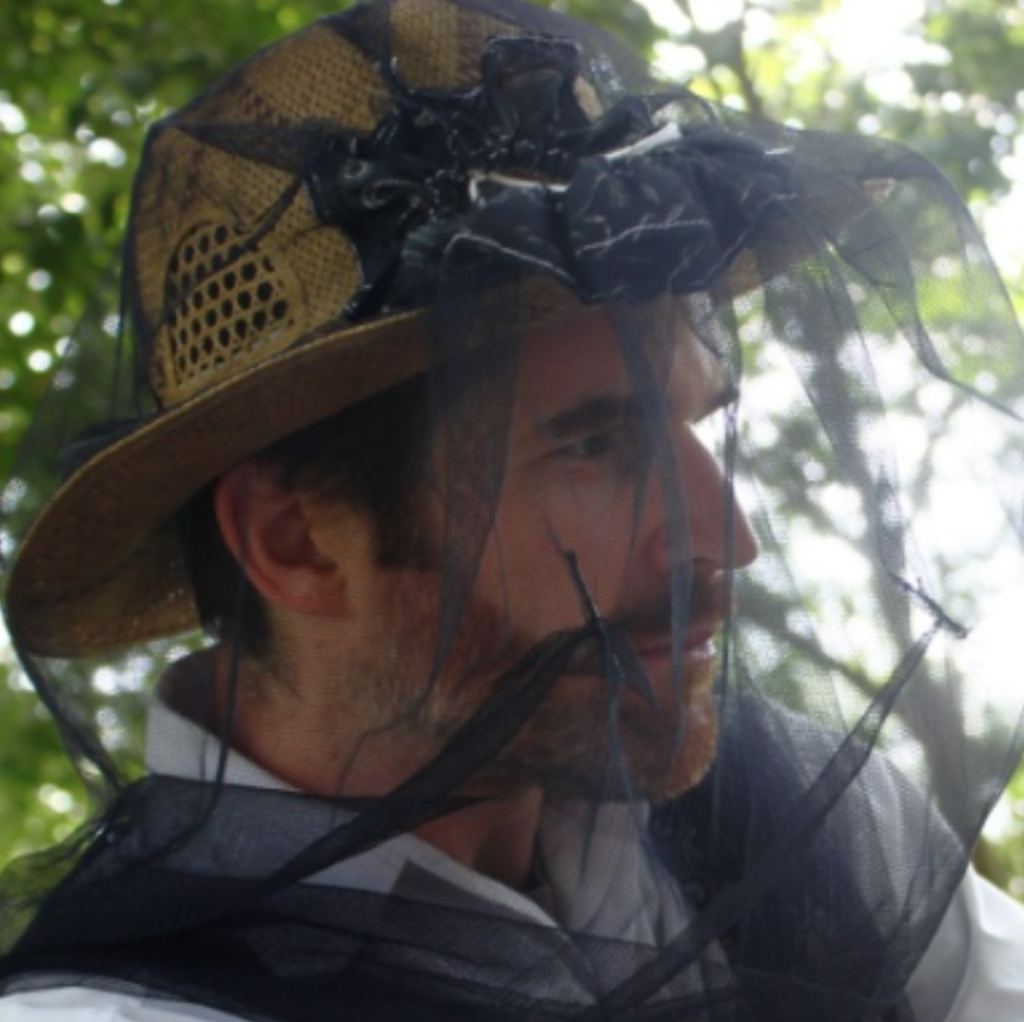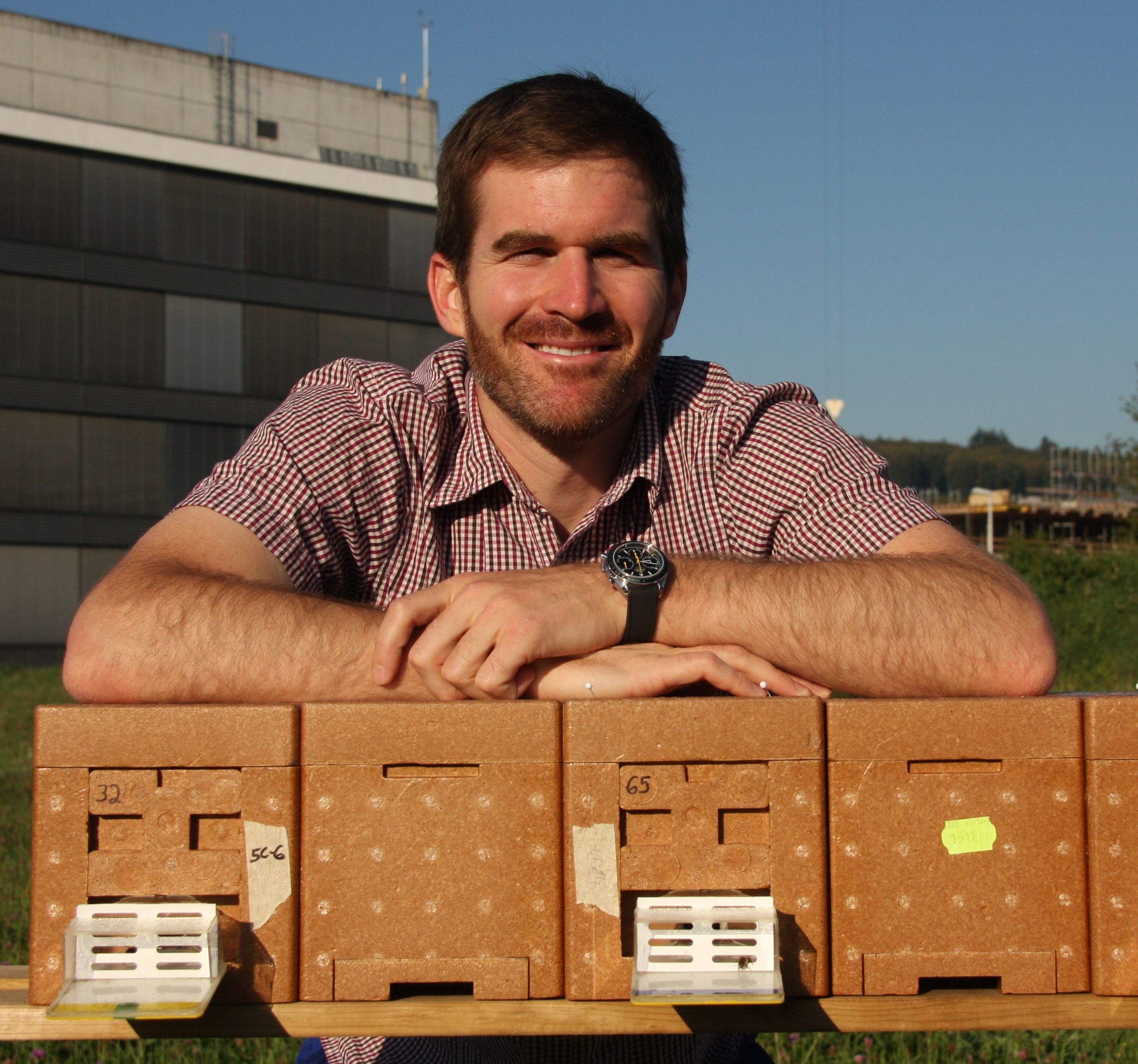You are not logged in. Please login TO VIEW THE RECORDING. Thanks!
DAY: Wednesday, October 12, 2022 (2nd Wednesday of every month)
TIME: 6:30 pm - 9:00 pm
PRESENTATION TITLE: How a common pesticide can affect your queens and drones
GUEST SPEAKER: Dr. Geoff Williams, Assistant ProfessorDepartment of Entomology & Plant Pathology, Auburn University
WHERE: Virtual Meeting via Zoom.
ADD TO YOUR CALENDAR: Google Calendar Outlook Calendar (.ics) Yahoo Calendar
When it is time to attend, click the button below:
| 6:30.pm.ET | Member Meet-up! Join Zoom before the meeting starts and you can talk with old friends, meet new friends and have a good time. It is purposely unstructured so that you can socialize with fellow beekeepers. |
| 7:00.pm.ET | * Club Announcements from MCBA's President, Eric Malcolm |
| 7:30.pm.ET | Dr. Geoff Williams |
Description of Geoff's Talk:
CONTEXT: Among the most used pesticides in the world are NEONICOTINOIDS. They were not used commercially until the 1990's, but are now used on 1000+ crops in 100+ countries. They act by interfering with an insect's nervous system, including their brain. In bees, high levels cause paralysis, twitching, and death, low levels result in reduced foraging, disorientation (trouble finding 'home'), and impaired flying.
Geoff will help our club understand how neonics affect reproduction:
- How neonics affect our queen's ability to lay eggs
- How neonics affect our drone's ability to mate
- What this means for our colonies' viability
- How we can protect our colonies
NEONICOTINOID BACKGROUND INFO from Phil Frank:
* Neonics are prevalent in the environment
* They can be found in plants and soil months and years after application.
* Not just an issue for rural beekeepers - they are used on ornamentals, turf, and landscape management as well as vegetable crops, field crops and fruit crops.
* Applications include: Spraying, injection into tree trunks, drenching soil, and coating seeds.
* Neonics are a systemic pesticide, meaning they are distributed throughout plant tissues (to protect the entire plant)
* Bees are exposed to neonics far beyond the plants that are treated: Wildflowers absorb neonics through drift, soil leaching, waterway contamination, and dust generated by machines planting the coated seeds.
* Why did neonics become so popular? Direct exposure to humans is less harmful than other pesticides.

About Dr. Geoff Williams:
I’m a Canadian transplant living and working in Alabama. I grew up in Alberta, went to grad school training in Nova Scotia, and have worked with honey bees throughout North America, Europe, and Asia. Before joining Auburn University, I worked for the Swiss government. Now at Auburn University, I’m delivering a program that seeks to better understand
and promote bee health. To achieve these massive goals (as you can imagine), the AU-BEES lab is
working on various topics – from studying the effects of neonicotinoids on queens, to working on
the latest Integrated Pest Management tool against varroa, to performing the Bee Informed
Partnership’s National Colony Loss and Management Survey, to investigating bee attractiveness to native wildflowers.
Apart from assisting my students with their studies, another aspect of my work that I really enjoy is
discussing with beekeepers – hearing why you keep bees and love beekeeping, and what are some
of your major challenges. Despite geographic and cultural differences, bees bring many different
people together – I love this! I’m looking forward to seeing you soon!
FOLLOW GEOFF! aub.ie/auburnbees | @auburnbees on Facebook and Instagram

